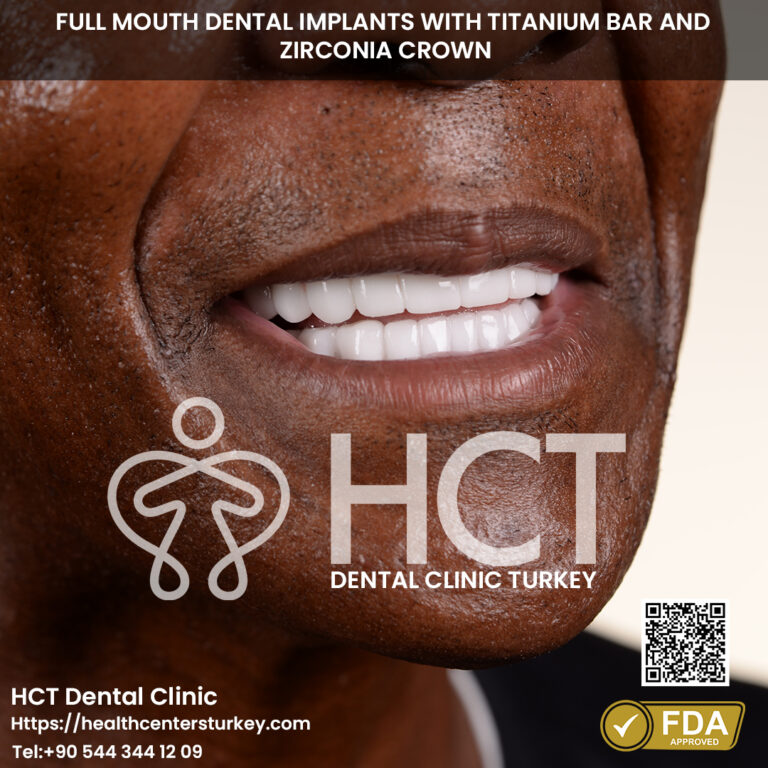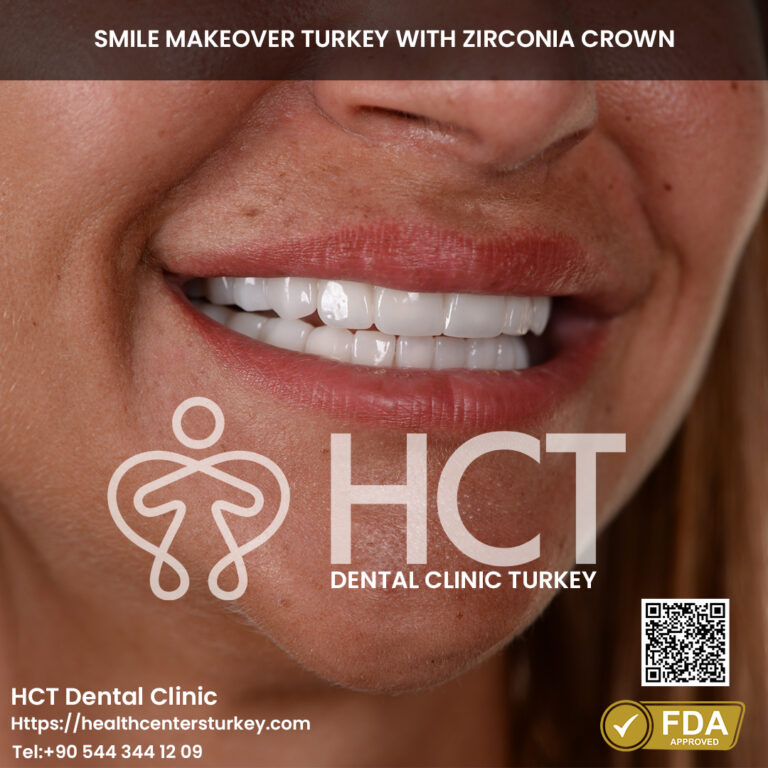Get Top-Notch Dental Care in Antalya
Get Top-Notch Dental Care in Antalya
Blog Article
Explore the Premier Choices for Dental Care across Turkey

Dental implants have become a focus in trendy dentistry, providing a reliable solution for those facing tooth loss. Among the multiple advantages they provide, one vital side value contemplating is their influence on adjacent teeth. Understanding how dental implants have an effect on surrounding teeth aids in making knowledgeable decisions about oral health.
When a tooth is misplaced, neighboring teeth can easily shift toward the area left behind. This motion can lead to misalignment, which compromises the overall bite and performance of the mouth. Dental implants mimic natural tooth roots, thereby maintaining the place of adjacent teeth.
Complete Dental Services for A Radiant Smile
The stability offered by an implant is essential, because it helps in preserving not just the physical alignment but additionally the structural integrity of the jawbone. When a tooth is missing, the underlying bone can begin to deteriorate due to lack of stimulation. An implant exerts pressure on the bone throughout chewing, similar to a natural tooth, which promotes bone health.
In some circumstances, a bridge or partial denture may be considered as an alternative to implants. While these options might restore some performance, they'll place extra stress on neighboring teeth. Bridges often require filing down the surrounding teeth to accommodate the anchors, thereby affecting their health over time. Dental implants, however, don't alter existing teeth, making them a more conservative selection.
Receive High-Quality Dental Implant Services at Low Prices
Hygiene becomes another crucial issue when considering adjacent teeth in the context of implants. With dental implants, the person can preserve a regular hygiene routine just like natural teeth. Flossing and brushing across the implant are easy, ensuring that the gum tissue remains healthy and minimizing the danger of gum disease that would adversely affect adjacent teeth.
Moreover, the supplies utilized in dental implants are biocompatible. This means they are designed to integrate well with the body, decreasing the probabilities of an opposed response. This attribute not solely makes the implant secure but additionally protects close by teeth from potential points that could arise as a result of contamination or infection.
In terms of aesthetics, dental implants offer a natural appear and feel, intently resembling unique teeth. Adjacent teeth profit from this aesthetic attraction as properly. When an implant is placed, the surrounding gum tissue could be shaped to imitate natural contours, thereby enhancing the general appearance of the smile. This aesthetic factor can encourage individuals to spend money on their oral care routines, benefiting each the implants and adjacent teeth in the long run.
Showcasing the Top-Rated Oral Health Solutions of Turkey for Beautiful Smiles
Another concern is the potential for gum disease, which might affect the health of adjacent teeth. Gum disease can occur when plaque builds up around teeth and implants. Regular dental visits and acceptable oral hygiene can mitigate this concern. The presence of implants can also function a motivator for better dental hygiene practices, as people become extra acutely aware of maintaining their general mouth health.
Studies have proven that dental implants can contribute to a big enchancment in quality of life. Patients typically experience elevated confidence and are much less hesitant to smile or engage in social interactions. A wholesome and well-maintained smile not directly promotes higher care for adjacent teeth, as individuals are most likely to become more conscious of their total oral hygiene.
One often-overlooked side is the psychological impact of dental implants on patients. Knowing that implants offer long-term options can ease the anxiousness associated with tooth loss. With fewer worries about future tooth shifts, patients usually tend to invest time and effort into caring for their teeth, which includes adjacent teeth.
In conclusion, dental implants function more than only a answer for missing teeth; they play a pivotal role in sustaining the health and integrity of adjacent teeth. From preventing misalignment to selling gum health and enhancing aesthetics, the benefits are manifold. By choosing implants, individuals can't only restore functionality but in addition foster a healthier oral setting for surrounding teeth. The psychological and aesthetic advantages additional contribute to an overall enhanced quality of life.
Access World-Class Dental Services in Turkey
In the long run, understanding how dental implants have an effect on adjacent teeth can information individuals in making empowered decisions regarding their dental health. The integration of these implants into the mouth acts as a stabilizing drive, safeguarding both the bodily alignment link and functionality of neighboring teeth, whereas promoting a long-lasting, wholesome smile.
- Dental implants typically do not exert pressure on adjacent teeth, sustaining their integrity and reducing the danger of shifting or misalignment.
- The placement of an implant usually encourages better oral hygiene habits, positively influencing the health of adjacent teeth by way of improved cleaning practices.
Everything You Need to Know About Dental Tourism to Turkey
- In some circumstances, dental implants can stimulate the surrounding bone, which helps protect the natural teeth's position and general dental structure.

- The hole left by missing teeth can result in bone loss; dental implants can prevent this, thereby protecting adjacent teeth from potential complications.
- Explore the Best Options for Dental Care across Turkey
Tips for Dental Procedures in Turkey
- By restoring the perform of a missing tooth, implants assist distribute bite forces evenly, reducing put on and stress on neighboring teeth.

- Properly positioned dental implants can act as a assist structure, stopping undesirable motion of adjacent teeth ensuing from tooth loss.
- The presence of an implant might enhance the aesthetic appearance of surrounding teeth by filling in gaps and supporting facial structure.
Affordable Dental Implants designed for Patients
- Dental implants eliminate the need for adjacent teeth alteration, unlike bridges, which require reshaping the nearby teeth for support.
- Implants additionally cut back the chance of gum disease in comparability with different tooth replacement choices, not directly benefiting adjacent teeth by selling general oral health.
Expertise in Oral Health at Affordable Rates.
- Long-term success of dental implants is linked to the health of surrounding teeth, emphasizing the importance of standard dental check-ups and maintenance.
How do dental implants affect adjacent teeth?
Cost-Efficient Teeth Transformations in Turkey
What are dental implants and how do they work with adjacent teeth?undefinedDental implants are artificial tooth roots placed into the jawbone to assist replacement teeth. They don’t affect adjacent teeth immediately, as they are independent buildings. Instead, they can help maintain the integrity of surrounding teeth by stopping bone loss.
Can dental implants cause damage to adjacent teeth?undefinedIf positioned correctly, dental implants should not hurt adjacent teeth. However, improper placement can lead to issues like misalignment or pressure, emphasizing the significance of choosing an skilled dental professional.
Will dental implants promote bone development around adjacent teeth?undefinedYes, dental implants assist stimulate the jawbone, which may encourage bone growth. This can profit adjacent teeth by sustaining bone density and stability in the area.
The Advantages of Dental Treatments in Turkey for International Patients
Should I worry about gum disease affecting adjacent teeth after getting an implant?undefinedGood oral hygiene is crucial after getting an implant. Gum disease can nonetheless have an result on adjacent teeth, but a correctly maintained implant does not improve that risk. Regular dental visits can help monitor and preserve gum health.
What happens to adjacent teeth if I lose a dental implant?undefinedIf a dental implant fails or is lost, adjacent teeth could shift due to modifications in bite alignment and link assist structure. This might lead to misalignment or extra tooth loss if not addressed.
Are there any special care requirements for adjacent teeth after getting implants?undefinedMaintaining good oral hygiene practices, together with regular brushing, flossing, and dental check-ups, is essential for each dental implants and adjacent teeth to prevent decay and gum disease.
Complete Dental Packages Featuring Implants
Do dental implants assist help adjacent teeth when chewing?undefinedAbsolutely. Implants can improve total chew operate, which may alleviate stress on adjacent teeth during chewing. This can result in better distribution of forces, selling oral health.
How can I prevent problems with adjacent teeth and implants?undefinedConsistent dental care, together with professional cleanings and examinations, regular brushing and flossing, and following your dentist’s aftercare directions, are key to preventing issues.
Can adjacent teeth move if I have a dental implant?undefinedAdjacent teeth might transfer if they are not well-supported, especially after tooth loss. A dental implant helps maintain the structure, decreasing the risk of shifting teeth. Report this page